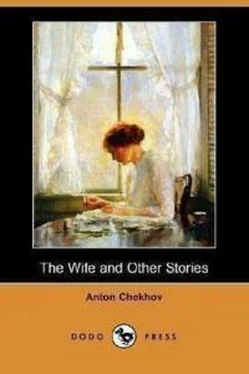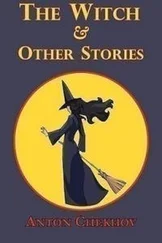She laughed and talked with Ivan Ivanitch without being in the least disturbed that she was in my room and that I was not laughing.
"And so, my friends, what are we to do?" I asked after waiting for a pause. "I suppose before we do anything else we had better immediately open a subscription–list. We will write to our friends in the capitals and in Odessa, Natalie, and ask them to subscribe. When we have got together a little sum we will begin buying corn and fodder for the cattle; and you, Ivan Ivanitch, will you be so kind as to undertake distributing the relief? Entirely relying on your characteristic tact and efficiency, we will only venture to express a desire that before you give any relief you make acquaintance with the details of the case on the spot, and also, which is very important, you should be careful that corn should be distributed only to those who are in genuine need, and not to the drunken, the idle, or the dishonest."
"Yes, yes, yes…" muttered Ivan Ivanitch. "To be sure, to be sure."
"Well, one won't get much done with that slobbering wreck," I thought, and I felt irritated.
"I am sick of these famine–stricken peasants, bother them! It's nothing but grievances with them!" Ivan Ivanitch went on, sucking the rind of the lemon. "The hungry have a grievance against those who have enough, and those who have enough have a grievance against the hungry. Yes… hunger stupefies and maddens a man and makes him savage; hunger is not a potato. When a man is starving he uses bad language, and steals, and may do worse…. One must realize that."
Ivan Ivanitch choked over his tea, coughed, and shook all over with a squeaky, smothered laughter.
"'There was a battle at Pol…Poltava,'" he brought out, gesticulating with both hands in protest against the laughter and coughing which prevented him from speaking. "'There was a battle at Poltava!' When three years after the Emancipation we had famine in two districts here, Fyodor Fyodoritch came and invited me to go to him. 'Come along, come along,' he persisted, and nothing else would satisfy him. 'Very well, let us go,' I said. And, so we set off. It was in the evening; there was snow falling. Towards night we were getting near his place, and suddenly from the wood came 'bang!' and another time 'bang!' 'Oh, damn it all!'…I jumped out of the sledge, and I saw in the darkness a man running up to me, knee–deep in the snow. I put my arm round his shoulder, like this, and knocked the gun out of his hand. Then another one turned up; I fetched him a knock on the back of his head so that he grunted and flopped with his nose in the snow. I was a sturdy chap then, my fist was heavy; I disposed of two of them, and when I turned round Fyodor was sitting astride of a third. We did not let our three fine fellows go; we tied their hands behind their backs so that they might not do us or themselves any harm, and took the fools into the kitchen. We were angry with them and at the same time ashamed to look at them; they were peasants we knew, and were good fellows; we were sorry for them. They were quite stupid with terror. One was crying and begging our pardon, the second looked like a wild beast and kept swearing, the third knelt down and began to pray. I said to Fedya: 'Don't bear them a grudge; let them go, the rascals!' He fed them, gave them a bushel of flour each, and let them go: 'Get along with you,' he said. So that's what he did…. The Kingdom of Heaven be his and everlasting peace! He understood and did not bear them a grudge; but there were some who did, and how many people they ruined! Yes…Why, over the affair at the Klotchkovs' tavern eleven men were sent to the disciplinary battalion. Yes…. And now, look, it's the same thing. Anisyin, the investigating magistrate, stayed the night with me last Thursday, and he told me about some landowner…. Yes…. They took the wall of his barn to pieces at night and carried off twenty sacks of rye. When the gentleman heard that such a crime had been committed, he sent a telegram to the Governor and another to the police captain, another to the investigating magistrate!…Of course, every one is afraid of a man who is fond of litigation. The authorities were in a flutter and there was a general hubbub. Two villages were searched."
"Excuse me, Ivan Ivanitch," I said. "Twenty sacks of rye were stolen from me, and it was I who telegraphed to the Governor. I telegraphed to Petersburg, too. But it was by no means out of love for litigation, as you are pleased to express it, and not because I bore them a grudge. I look at every subject from the point of view of principle. From the point of view of the law, theft is the same whether a man is hungry or not."
"Yes, yes…" muttered Ivan Ivanitch in confusion. "Of course…To be sure, yes."
Natalya Gavrilovna blushed.
"There are people…" she said and stopped; she made an effort to seem indifferent, but she could not keep it up, and looked into my eyes with the hatred that I know so well. "There are people," she said, "for whom famine and human suffering exist simply that they may vent their hateful and despicable temperaments upon them."
I was confused and shrugged my shoulders.
"I meant to say generally," she went on, "that there are people who are quite indifferent and completely devoid of all feeling of sympathy, yet who do not pass human suffering by, but insist on meddling for fear people should be able to do without them. Nothing is sacred for their vanity."
"There are people," I said softly, "who have an angelic character, but who express their glorious ideas in such a form that it is difficult to distinguish the angel from an Odessa market–woman."
I must confess it was not happily expressed.
My wife looked at me as though it cost her a great effort to hold her tongue. Her sudden outburst, and then her inappropriate eloquence on the subject of my desire to help the famine–stricken peasants, were, to say the least, out of place; when I had invited her to come upstairs I had expected quite a different attitude to me and my intentions. I cannot say definitely what I had expected, but I had been agreeably agitated by the expectation. Now I saw that to go on speaking about the famine would be difficult and perhaps stupid.
"Yes…" Ivan Ivanitch muttered inappropriately. "Burov, the merchant, must have four hundred thousand at least. I said to him: 'Hand over one or two thousand to the famine. You can't take it with you when you die, anyway.' He was offended. But we all have to die, you know. Death is not a potato."
A silence followed again.
"So there's nothing left for me but to reconcile myself to loneliness," I sighed. "One cannot fight single–handed. Well, I will try single–handed. Let us hope that my campaign against the famine will be more successful than my campaign against indifference."
"I am expected downstairs," said Natalya Gavrilovna.
She got up from the table and turned to Ivan Ivanitch.
"So you will look in upon me downstairs for a minute? I won't say good–bye to you."
And she went away.
Ivan Ivanitch was now drinking his seventh glass of tea, choking, smacking his lips, and sucking sometimes his moustache, sometimes the lemon. He was muttering something drowsily and listlessly, and I did not listen but waited for him to go. At last, with an expression that suggested that he had only come to me to take a cup of tea, he got up and began to take leave. As I saw him out I said:
"And so you have given me no advice."
"Eh? I am a feeble, stupid old man," he answered. "What use would my advice be? You shouldn't worry yourself…. I really don't know why you worry yourself. Don't disturb yourself, my dear fellow! Upon my word, there's no need," he whispered genuinely and affectionately, soothing me as though I were a child. "Upon my word, there's no need."
Читать дальше












